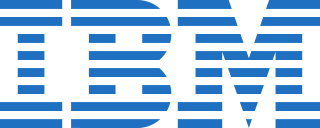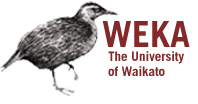
Db2 is a family of data management products, including database servers, developed by IBM. It initially supported the relational model, but was extended to support object–relational features and non-relational structures like JSON and XML. The brand name was originally styled as DB2 until 2017, when it changed to its present form.

SAS is a statistical software suite developed by SAS Institute for data management, advanced analytics, multivariate analysis, business intelligence, criminal investigation, and predictive analytics. SAS' analytical software is built upon artificial intelligence and utilizes machine learning, deep learning and generative AI to manage and model data. The software is widely used in industries such as finance, insurance, health care and education.

Ulf Michael Widenius, also known as Monty, is a Finnish software programmer. He is the main author of the original version of the open source MySQL database, a founding member of the MySQL AB company and CTO of the MariaDB Corporation AB. Additionally, he is a founder and general partner at venture capital firm OpenOcean.

Waikato Environment for Knowledge Analysis (Weka) is a collection of machine learning and data analysis free software licensed under the GNU General Public License. It was developed at the University of Waikato, New Zealand and is the companion software to the book "Data Mining: Practical Machine Learning Tools and Techniques".

Altair Engineering Inc. is an American multinational information technology company headquartered in Troy, Michigan. It provides software and cloud solutions for simulation, IoT, high performance computing (HPC), data analytics, and artificial intelligence (AI). Altair Engineering is the creator of the HyperWorks CAE software product, among numerous other software packages and suites. The company was founded in 1985 and went public in 2017. It is traded on the Nasdaq stock exchange under the stock ticker symbol ALTR. Altair develops and provides software and cloud services for product development, high-performance computing (HPC), simulation, artificial intelligence, and data intelligence.
Oracle Data Mining (ODM) is an option of Oracle Database Enterprise Edition. It contains several data mining and data analysis algorithms for classification, prediction, regression, associations, feature selection, anomaly detection, feature extraction, and specialized analytics. It provides means for the creation, management and operational deployment of data mining models inside the database environment.

The World Programming System, also known as WPS Analytics or WPS, is a software product developed by a company called World Programming.
KNIME, the Konstanz Information Miner, is a free and open-source data analytics, reporting and integration platform. KNIME integrates various components for machine learning and data mining through its modular data pipelining "Building Blocks of Analytics" concept. A graphical user interface and use of JDBC allows assembly of nodes blending different data sources, including preprocessing, for modeling, data analysis and visualization without, or with minimal, programming.

MariaDB is a community-developed, commercially supported fork of the MySQL relational database management system (RDBMS), intended to remain free and open-source software under the GNU General Public License. Development is led by some of the original developers of MySQL, who forked it due to concerns over its acquisition by Oracle Corporation in 2009, but in 2024 MariaDB was itself bought by the K1 private equity group, which appointed a new CEO.
Rexer Analytics’s Annual Data Miner Survey is the largest survey of data mining, data science, and analytics professionals in the industry. It consists of approximately 50 multiple choice and open-ended questions that cover seven general areas of data mining science and practice: (1) Field and goals, (2) Algorithms, (3) Models, (4) Tools, (5) Technology, (6) Challenges, and (7) Future. It is conducted as a service to the data mining community, and the results are usually announced at the PAW conferences and shared via freely available summary reports. In the 2013 survey, 1259 data miners from 75 countries participated. After 2011, Rexer Analytics moved to a biannual schedule.
Revolution Analytics is a statistical software company focused on developing open source and "open-core" versions of the free and open source software R for enterprise, academic and analytics customers. Revolution Analytics was founded in 2007 as REvolution Computing providing support and services for R in a model similar to Red Hat's approach with Linux in the 1990s as well as bolt-on additions for parallel processing. In 2009 the company received nine million in venture capital from Intel along with a private equity firm and named Norman H. Nie as their new CEO. In 2010 the company announced the name change as well as a change in focus. Their core product, Revolution R, would be offered free to academic users and their commercial software would focus on big data, large scale multiprocessor computing, and multi-core functionality.

Datadog, Inc. is an American company that provides an observability service for cloud-scale applications, providing monitoring of servers, databases, tools, and services, through a SaaS-based data analytics platform. Founded and headquartered in New York City, the company is a publicly traded entity on the Nasdaq stock exchange. The mascot is a dog named Bits.

CARTO is a software as a service (SaaS) spatial analysis platform that provides GIS, web mapping, data visualization, spatial analytics, and spatial data science features. The company is positioned as a Location Intelligence platform due to its tools for geospatial data analysis and visualization that do not require advanced GIS or development experience. As a cloud-native platform, CARTO runs natively on cloud data warehouse platforms overcoming any previous limits on data scale for spatial workloads.

Alpine Data Labs is an advanced analytics interface working with Apache Hadoop and big data. It provides a collaborative, visual environment to create and deploy analytics workflow and predictive models. This aims to make analytics more suitable for business analyst level staff, like sales and other departments using the data, rather than requiring a "data engineer" or "data scientist" who understands languages like MapReduce or Pig.
Google Cloud Platform (GCP) is a suite of cloud computing services offered by Google that provides a series of modular cloud services including computing, data storage, data analytics, and machine learning, alongside a set of management tools. It runs on the same infrastructure that Google uses internally for its end-user products, such as Google Search, Gmail, and Google Docs, according to Verma et al. Registration requires a credit card or bank account details.

Oracle Cloud is a cloud computing service offered by Oracle Corporation providing servers, storage, network, applications and services through a global network of Oracle Corporation managed data centers. The company allows these services to be provisioned on demand over the Internet.
Deep Learning Studio is a software tool that aims to simplify the creation of deep learning models used in artificial intelligence. It is compatible with a number of open-source programming frameworks popularly used in artificial neural networks, including MXNet and Google's TensorFlow.











